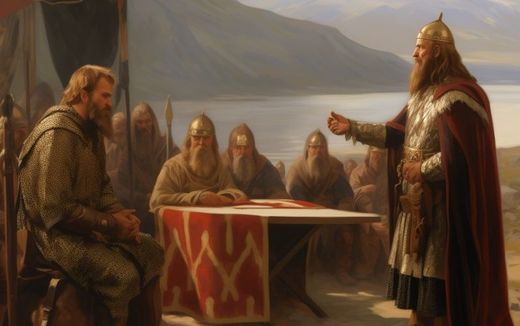Europe might be post-Christian, but not fully

Europe has lost some of its heritage but not all. Photo EPA, Neil Hall
European Union
Without the Judeo-Christian identity, European cultures would not be the way they are now, many leaders in Europe believe. But how Christian is Europe?
Stay up to date with Christian news in Europe? Sign up for CNE's newsletter.
If Europe’s roots lie in Christianity, Islam is no more than a foreign religion in this part of the world. Besides, that also means that we would lose part of our identity if secularisation ever de-Christianised our nations.
But can we honestly claim that our nations are Christian? What are the conditions for this to be true? It depends on the definition we use.
This is a series about the Christian view on today's world.
Some would say that the answer to this question depends on whether the majority of the nation identifies as Christian. Their answer to this question is, therefore, unequivocally negative. Statistics regularly show how a seemingly growing number of Europeans do not identify themselves as Christians any more.
Others argue that despite the decreasing number of churchgoers, our history and dominant values, such as the rule of law, human rights, and freedom of speech, still stem from Christianity. For them, Europe remains a Christian continent.
It is clear to me that every good thing we find in our European nations results from the impact of the Christian faith in our societies. But it is also evident that the majority of Europeans are not necessarily Christians these days. So, what position should we adopt?
Undesirable parasite
Let me suggest a third option. From a Biblical perspective, all the world's nations are Christian, whether they profess Jesus Christ or not, or have a Judeo-Christian background.
Such a claim seems ridiculous at first. Nations like Iran, North Korea, and many others do not profess Christianity as their national religion. In fact, in many countries, Christianity is considered nothing more than an undesirable parasite. How can we then say that all nations of the world are Christian?
Several centuries before Jesus came to earth, David wrote that God the Father promised His Son all the nations of the world (cf. Psalm 2:7-9). This promise was fulfilled at Jesus’ resurrection. This is why, just before his Ascension, Jesus could proclaim He had received all authority, both in heaven and on earth (Matthew 28:18). Consequently, all the nations of the world are Christian, i.e. all the nations of the world belong to Christ.
Of course, not all nations recognise Jesus as their supreme authority – far from it! But Jesus is not a king like the heads of state of this world. A king or a president needs the approval of the people they govern, whether that approval is obtained by force or by vote. Jesus earned His right to reign through His death on the cross. He governs the world’s nations today, and no one can remove Him from His throne.
Parable
Matthew 13 is a crucial passage. Through the parable of the weeds, Jesus warned His disciples that both evil and good would grow at the same time (Matthew 13:24-30). However, this did not mean that His authority was in danger. In the following parable of the Good Seed, Jesus also told His audience that the kingdom of heaven was like a seed that had to die in the earth to become a tree in which “…the birds come and perch in its branches” (Matthew 13:32). The seed that had to die was Jesus’ death at the cross. His resurrection, then, represented the inauguration of the kingdom of God on earth.
We are still living in an era in which evil grows. Indeed, nations continue to rebel against the lordship of Jesus Christ. But this era will come to an end. Evil will be tied “in bundles to be burned”, while the good “will be brought into [God’s] barn.”
In the meantime, the church should recognise Christ’s authority, not only within the church, but in society at large, whether nations acknowledge Him or not. In His Sermon on the Mount, Jesus affirmed that the church was the salt and light of the earth.
Supreme King
What does this mean in practice? The church is to teach and apply all of God’s law in society (Matthew 5:17-20). And because Jesus has now become the supreme King over all nations of the earth, the church is to teach the whole world everything Jesus commanded (Matthew 28:19).
Applying God’s law impacts our view of all spheres of life. For example, the continuous presence of the Christian church in Europe made the Western legal tradition heavily rooted in Biblical law.
Though the church has not always been faithful, it has applied Jesus’ commandment. And wherever it did, it generated lasting fruits, such as the above values.
Some may see today’s Europe as post-Christian, but Jesus still owns the nations of Europe. Therefore, one question remains: Is today’s church ready to walk in the footsteps of its forebears? The future of Europe depends on it.
Related Articles
No Tags found










